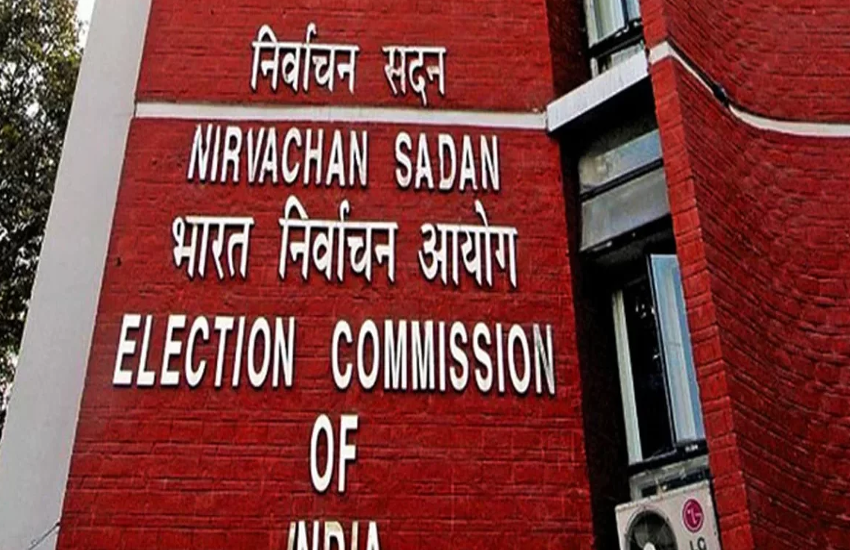Govt welcomes new recommendations for Muslims' education. But will it implement?

It’s been over a decade since the Sachar Committee's recommendations were tabled in Parliament. And despite the Narendra Modi government’s claims of taking a slew of decisions to implement its recommendations, Muslims in India continue to be the most educationally and socially backward among minorities.
These observations were made by a committee of the Maulana Azad Education Foundation (MAEF). The committee has recommended a three-tier multidimensional system for providing access to quality education in areas where there is a high concentration of minorities.
Accepting the committee's report, Union Minister for Minority Affairs Mukhtar Abbas Naqvi said the process to establish five world class educational institutions has begun, as per the panel’s suggestions.
However, pointing to the communal agenda of the ruling BJP, a section of stakeholders are skeptical about the Modi government effectively implementing the recommendations, and the benefits ultimately reaching the Muslims.
The recommendations
The panel, headed by former IAS officer Afzal Amanullah, was constituted in December by the Ministry of Minority Affairs, to chalk out a detailed roadmap for the educational empowerment of minorities.
The panel suggested a three-tier education system – 211 schools to be set up at the lowest level, 25 community colleges at the middle level, and five premier national institutes at the top level. These five institutes will feature masters, doctoral, and post-doctoral courses in fields like science, technology and medicine.
The schools – 167 in rural and 44 in urban minority-dominated areas of India – will run on the lines of Kendriya Vidyalayas and Navodaya Vidyalayas, and will follow the CBSE curriculum.
The proposed community colleges will also impart skill-based courses.
Skepticism about implementation
The recommendations have been warmly welcomed by the ministry, with Naqvi doling out assurances about implementing them.
However, at a time when the country has witnessed a spate of lynchings and attacks on Muslims in the name of cow protection, there is a lot of skepticism about the government’s intentions in effectively implementing them.
“Going by the BJP’s historical anti-Muslim stand, and the prevailing scenario in the country, doubts will always remain about the government’s commitment towards implementing these recommendations,” said a source privy to the recommendations.
“Even though the ministry has asserted that it's already working on the modalities, it remains to be seen how far they materialise. It’s a widely-accepted perception that this government is all words and no deeds. One can only hope these much-needed reforms are carried out,” the source added.
An educationist who has been documenting the educational issues of minorities also appeared skeptical.
“We have all heard about how successive governments have 'implemented' the Sachar Committee recommendations, and how they have been 'working tirelessly' for the welfare of minorities. But the condition of Muslims has remained the same. Going by the ways of this government, it wouldn’t be surprising if these recommendations forever remain just that,” the educationist said, wishing not to be identified.
Hope for the best
However, there are others who are optimistic of the panel’s efforts fructifying.
“The Minority Affairs Ministry under this government has been sincere in its efforts. A series of welfare schemes targeted at educational, economic and social uplift of the minorities have been implemented. There is no reason to doubt that these recommendations will not be implemented. In fact, the process of identifying land for the schools and five premier institutes has already begun,” said journalist Qamar Agha, a member of the panel.
Jamia Milia Islamia vice-chancellor Talat Ahmed, also a member of the panel, hoped the government would act on the suggestions.
“Of course, inaction remains the prime reason behind Muslims still being socially and educationally the most backward. But one can hope for the best. This panel was created by this government, which has now accepted the recommendations. So one can only be positive about the outcome,” he said.
Navaid Hamid, president of the All India Muslim Majlis-e-Mushawarat, an umbrella organisation of Muslim organisations, is also hopeful.
“A lot of work is to be done before these recommendations are approved and implemented. But with the 2019 polls not very far away, this government will look to implement them. While it is too early to comment on whether they will be implemented, one can be optimistic,” said Hamid, who recently wrote to Prime Minister Modi, drawing his attention to the growing incidents of cow vigilantism.
First published: 7 July 2017, 20:56 IST




![BJP's Kapil Mishra recreates Shankar Mahadevan’s ‘Breathless’ song to highlight Delhi pollution [WATCH] BJP's Kapil Mishra recreates Shankar Mahadevan’s ‘Breathless’ song to highlight Delhi pollution [WATCH]](https://images.catchnews.com/upload/2022/11/03/kapil-mishra_240884_300x172.png)

![Anupam Kher shares pictures of his toned body on 67th birthday [MUST SEE] Anupam Kher shares pictures of his toned body on 67th birthday [MUST SEE]](https://images.catchnews.com/upload/2022/03/07/Anupam_kher_231145_300x172.jpg)






